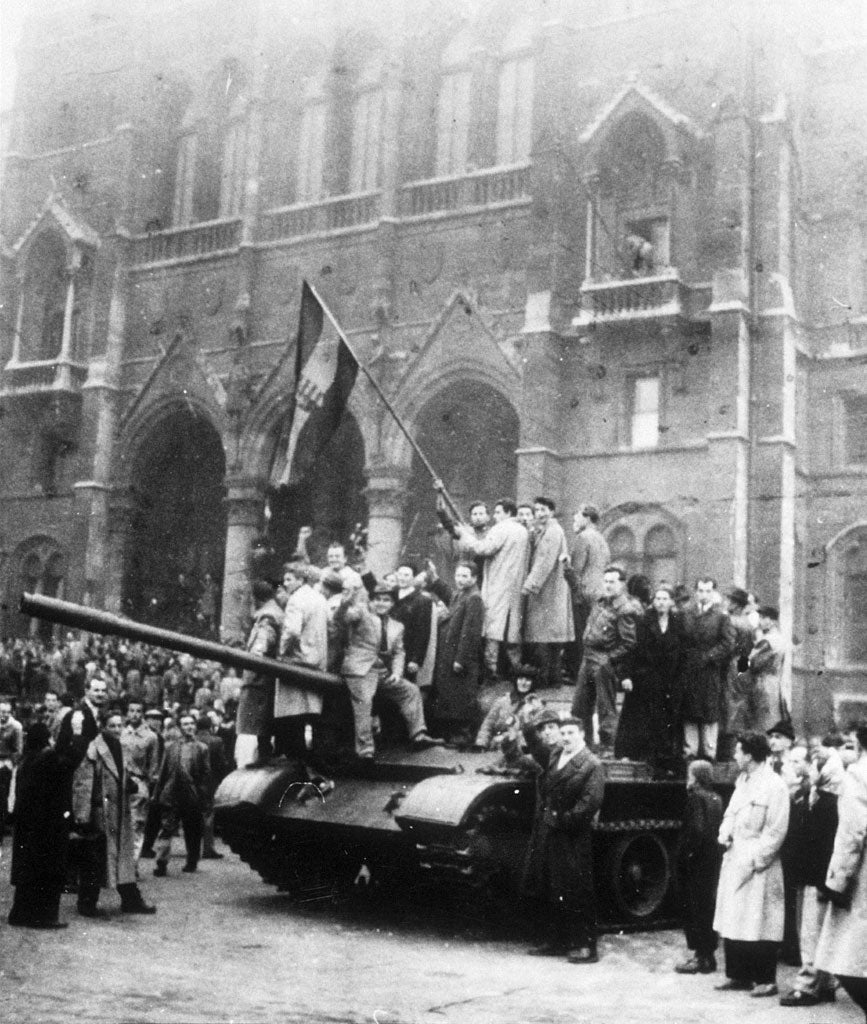Parallel Stories, By Peter Nadas, trans. Imre Goldstein

Your support helps us to tell the story
From reproductive rights to climate change to Big Tech, The Independent is on the ground when the story is developing. Whether it's investigating the financials of Elon Musk's pro-Trump PAC or producing our latest documentary, 'The A Word', which shines a light on the American women fighting for reproductive rights, we know how important it is to parse out the facts from the messaging.
At such a critical moment in US history, we need reporters on the ground. Your donation allows us to keep sending journalists to speak to both sides of the story.
The Independent is trusted by Americans across the entire political spectrum. And unlike many other quality news outlets, we choose not to lock Americans out of our reporting and analysis with paywalls. We believe quality journalism should be available to everyone, paid for by those who can afford it.
Your support makes all the difference.Although critics in the author's native Hungary have hailed Parallel Stories as a 21st-century War and Peace, English readers are sure to be more sceptical. At 1130 densely-packed pages, it certainly has the heft of Tolstoy's masterpiece, but there the similarities end. Whereas Tolstoy created a gallery of richly drawn characters caught in the sweep of history, Peter Nadas creates a series of elusive consciousnesses floundering in the whirligig of time.
The novel opens in newly reunified Berlin where Dohring, a student taking his morning run, discovers a corpse which, as Dr Kienast, the investigating officer, soon learns, has no identifying marks. While this serves as a telling metaphor for a world in which national, racial and sexual identities are exceptionally fluid, it is one of the book's many weaknesses that, apart from an inconclusive meeting between Dohring and Kienast, the murder investigation never proceeds.
Germany is also the setting for a chilling chapter in a Nazi eugenics institute for illegitimate boys (who are taught the laws of physics from the suicides of their classmates), and for several chapters in and around the Pfeilen concentration camp, featuring the alliances, rivalries and even passions between Communist and criminal inmates, and the misadventures of two guards, Dohring's forebears. They steal a box of gold: a confusing episode, further complicated by being partly narrated in a dream.
The bulk of the novel takes place in Hungary, from the 1930s, when the Budapest bourgeoisie flirt with politics and each other, through the Nazi occupation, to the 1956 Uprising and the subsequent Soviet invasion. Nadas presents a wide range of characters, from a "Red Countess" who, with her brain-damaged lesbian lover and their circle of friends, clings to pre-war elegance, through the extended family of a celebrated professor who, though reviled for his fascist sympathies, has managed to curry favour with the new regime, taxi drivers, Jewish timber merchants.
For all its ambition, the novel is both unfulfilled and unfulfilling. The title might serve as a warning that there will be no narrative convergence; nothing, however, prepares the reader for the lack of narrative coherence. The problem is not so much that so few plot strands are resolved as that so few are even developed. Despite the range of characters, they all have very similar voices. The novel might well have been entitled Parallel Psychologies, since the central characters are constantly bemused by their own impulses and frustrated by others'. This leads to a pronounced flatness of tone, not aided by Imre Goldstein's translation, which seems to be more sensitive to the rhythms of Hungarian than of English prose.
If there is any guiding principle, it is that human desire is never simple and rarely comprehensible. Again and again, ostensibly heterosexual men express their longing for the touch of another male. The professor's wife, who once made love to a Sicilian hotelier's daughter, is now attracted to her son's girlfriend. The sea captain's wife and Kristof's mother both ran off with another woman.
The reader finishes the novel with a sense of his own achievement as much as the author's. There are passages of great power, but they are insufficient to sustain one's interest through the protracted chapters about people of whom we know far too little to care. Above all, the lack of either a narrative arc or a philosophical kernel is an insurmountable flaw. Students of European literature will no doubt need to read Parallel Stories; others would more profitably spend the time reading three or four average-sized novels - or even re-reading War and Peace.
Join our commenting forum
Join thought-provoking conversations, follow other Independent readers and see their replies
Comments